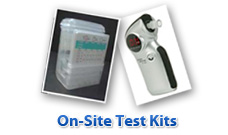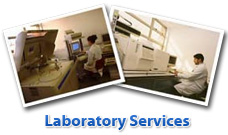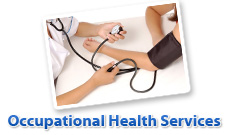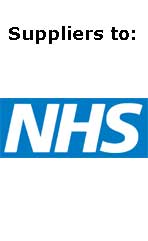Substance Misuse Awareness Training For Employers
Prompted by a necessity to assure health, safety and well-being of members of staff, workplace alcohol and drugs screening has grown more common around Great Britain. But nevertheless, there still persist an abundance of myths relating to the practice, that might result in misgivings amongst the staff involved in testing.
Substance Misuse Awareness Training For Employers – So, where are the dangers?
Lots of people assume that the effect of street drugs throughout the working environment is a very minor problem. Each and every one of us has seen Christmas drink-driving TV advertisements and understand that drink-driving and drug-driving is illegal and dangerous, so isn’t it possible to depend upon everyday people’s common sense? Sad to say, about one-half of all workplace and road deaths across Britain are connected with alcohol, illicit drugs, or a combination of both. Up-to-date reports demonstrate that over two thirds of illegal drug users are in full-time jobs, which means that the average illegal drug user is, in effect, the typical company employee. Up-to-date Home Office statistics estimate the number of 16 to 29-year-olds that have abused illegal substances throughout the last 12 months at almost 50% of that age range. Therefore, this shouldn’t be seen as someone else’s problem, it impacts almost every business. While the use of illicit drugs doesn’t necessarily imply a tendency to ignore hazards within the company, this does substantially broaden the possibility of accidents and near misses, attendance and punctuality issues, decreased productivity, damage to equipment and stock, litigation and a higher than average turnover of staff.
Substance Misuse Awareness Training For Employers – What companies do? Isn’t workplace alcohol and drug testing operationally disruptive?
A lot of organizations only carry out testing after a workplace accident, an incident, or in cases where they find reasonable cause for concern that a worker could potentially be unsafe or unfit to be at work. Due to the large variety of prospective risks found within heavy industrial work environments, numerous companies view it as completely prudent to trigger diagnostic testing in such instances, as a way to prevent them occurring ever again.
However, random employee drug testing takes on-site drug screening a stage further, whereby a predetermined sample of the workforce is selected at random to produce a breath and urine sample. This may sound intrusive, though it is quite commonplace for as little as five percent of the staff to be drug tested up to once per year. This would mean that only one in 20 individuals being drug and alcohol screened, or else, as a member of staff, your odds of being tested may be just once every 20 years. As incredible as it seems, this kind of minimalistic screening has already been demonstrated to lower failure rates from as much as 46% down to a low of only 2% within only a handful of months. This might indicate that the run of the mill substance abuser found in the work environment isn’t addicted and unable to change, but is simply making lifestyle choices that can possibly be adjusted in the direction of a more agreeable end result.
Substance Misuse Awareness Training For Employers. Will this be perceived to be a violation of an individuals’ freedoms?
While some employees may be resistant at first to the possibility of workplace screening, most perceive that this is primarily performed in order to underpin the well-being of all the people throughout the place of work. Provided that the extent of testing is comparable to the hazards within the workplace and doesn’t intentionally interfere with personnel personal time, it shouldn’t represent a danger to staff human rights. When it comes to the United States, around ninety eight percent of the biggest 1000 businesses drug and alcohol screen their personnel without any difficulty.
Is there really any danger while misusing substances away from the workplace?
A number of drugs have certainly formed a softer image through their repeated exposure in nationwide magazines and newspapers. In reality, terminologies such as “recreational cocaine use” are responsible for a significant amount of harm due to it downplaying the dangers to impressionable young people. For a lot of people, cocaine as a drug is much more habit forming than heroin and, as a result can not be abused recreationally without having considerable risk of falling prey to addiction. Addiction aside, the purity of cocaine has dropped from an average of 45 percent cocaine concentration in 2004 to a low of approximately 25 percent purity in 2010 (with purity at an all-time low of 9 percent being reported). Shockingly, the added cutting agents that the dealers use to increase the mass of the cocaine can range from local anaesthetics, cancer-causing chemicals, animal worming powders, all the way through to to insecticides. The fact of the matter is you should never ever trust a drug dealer.
Even substances typically considered to be soft drugs still carry risks. In recent years in Great Britain, a whopping 92% of men and women admitted for treatment for mental health problems are heavy cannabis users. With this in mind, workplace drugs testing realistically has the potential to tackle wider antisocial and mental health problems as it eventually is more widely accepted.
To learn more about workplace drug and alcohol policies together with home drug test kits, pay a visit to www.drug-aware.com
Information on the author: Christopher Evans is the Technical Director of Drug-Aware Ltd, a provider of Substance Misuse Awareness Training For Employers, drugs and alcohol test kits, laboratory services and drugs and alcohol awareness education. He has educated literally thousands of delegates spanning hundreds of businesses, HM Prison Service, the British police and hospitals and mental health units across the country.








